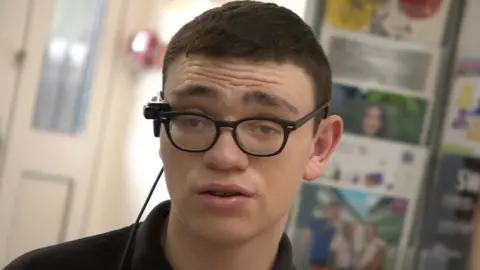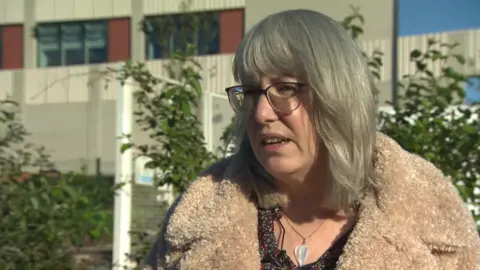Liverpool man calls for better disabled jobs commitment
 BBC
BBCA man with complex disabilities has told how landing a job left him feeling "on top of the world" and called on employers to "open their eyes" to equal opportunities.
Just over 5% of people with learning disabilities in the UK are employed, NHS figures show.
Harry Georgiou, 20, has called on 100 businesses in Liverpool to commit to giving paid work to those affected.
He said being unemployed when you are able to work was "damaging".
Mr Georgiou completed a supported internship when he was at the city's Sandfield Park School but said he feared he would never get a paid role.
He said as a teenager it was "frustrating" to think if you left school, whether you went to college or not, it would simply be "the same result" of not being employment.
Mr Georgiou now works for DFN Project Search, a transition to work programme, and wants to help other people get into paid employment.
"I think employers need to open their eyes," he said.
Before the coronavirus pandemic about 6% of people with learning disabilities in the UK were in employment before the number fell.
It is now 4.3% in the north-west of England.

During the pandemic Mr Georgiou set up a campaign group called 6 Per Cent and Rising to highlight issues around opportunities for young disabled people.
He said his biggest fear was seeing people who have talent and skills being unable to find work and "the damage that it causes to their mental and physical health".
Jeanette McHugh, from the charity Mencap, said: "It's not a big ask."
She asked people to consider what it would be like to reach the age of 30 or 40 and to "not have an opportunity to go to work and learn new skills and to fit in".
Mr Georgiou said: "I feel amazing and top of the world because I have a job. So many people don't have that opportunity.
"We need people to listen."
Liverpool City Region Combined Authority said it had invested £2.5m in services for supported internships and it supported Mr Georgio's campaign.
A spokesman said his efforts could have a "massive impact".

Why not follow BBC North West on Facebook, Twitter and Instagram? You can also send story ideas to [email protected]
